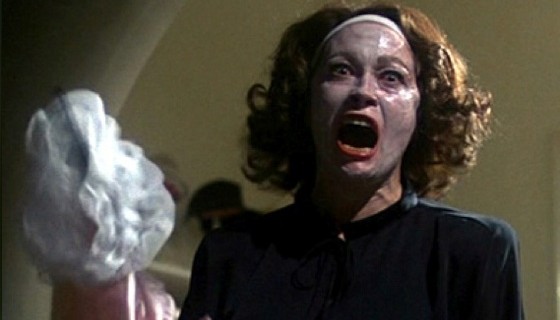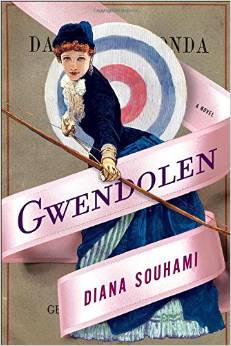For a writer I probably don’t read as much I should, but I have been reading more during the pandemic.
The Trespasser and The Secret Place by Tana French
Although I watch a lot of crime dramas, I don’t read too many crime or mystery novels. However, Tana French is an exception. Hers are more like crime or mystery literature with well-developed characters and excellent dialogue. The Irish slang is an added bonus.
I read The Trespasser before realizing I had skipped The Secret Place, which I promptly got with a generous birthday gift card. Back in my apartment in NYC, I have The Witch Elm waiting, and I wish to hell I had brought it with me.
The Immortalists by Chloe Benjamin
My friend Yiannis often gives me his books when he’s done with them, and this was one of them. I loved it. Set in NYC and San Francisco, it’s about a group of siblings who pay a fateful visit to a fortune teller, after which each of their lives is changed forever.
I’ll Be Gone in the Dark by Michelle McNamara
I love true crime in podcast form but less so in book form. However, I felt like it was important to read this one (and it was another freebie from Yiannis). Of course it was well written and brought to life McNamara’s search and obsession for the Golden State Killer, but I think I’m just not that into reading nonfiction. And I feel like I’ve learned just as much about the GSK from the various podcasts I’ve listened to as well as articles and such.
Exhalation by Ted Chiang
Another freebie, this one picked up from a random office. Although I don’t often read hard science fiction, I was interested in these short stories since Chiang wrote “Story of Your Life,” the basis of the movie Arrival. However, “Story of Your Life” isn’t included in Exhalation. I was a bit disappointed but I still enjoyed the other stories, some more than others. I fee like a couple could be movies or at least Black Mirror episodes.
My Brilliant Friend by Elena Ferrante
I’m late to the game on these immensely popular series of books, but better late than never: I loved it! Set in post-WWII Italy, it’s about a friendship between two young girls, and also what it’s like being a girl and a woman in a very male-dominated society in which you basically can’t make choices about your own life. Will definitely want to read the other “Neapolitan” novels as they’re called.
The Suicide of Claire Bishop by Carmiel Banasky
I had been reading this novel off and on for months. It’s the book I kept at my mom’s place for when I visited and part of a book club I used to belong to. It’s well written but just okay, at least to me. It’s about a woman in the late 1950s NYC who is painted by a mysterious artist, and then basically her troubled life. The chapters switch between her point of view and that of a young man in present time who has schizophrenia so you can’t tell what’s reality and what’s his skewed perception. Again, well done but not a page turner and not a book I would read again.
We Are Pirates by Daniel Handler
Another one from the book club and another meh. Set in San Francisco, it tells two stories, one from the point of view of a middle-aged man having a crisis and the other from his troubled teenaged daughter who runs away to basically be a pirate. The writing is good and the characters are well drawn, but it’s also at times overly quirky. Also, it’s not a novel I would have picked up on my own.
Ruby by Cynthia Bond
Oy, was this depressing. Set in Texas, this book club pick is about a kind man in love with a beautiful yet deeply troubled woman, the titular Ruby. While beautifully written with well-drawn characters and an affective story (I straight up cried), there are several scenes that are so incredibly dark and disturbing, one of which I had a very hard time erasing from my mind. (Turns out some reviewers on Goodreads agree.)
Could also be my state of mind. Right now I mostly just want to escape while I’m reading, not be sent into further depression.
Saint Maizie by Jami Attenberg
I really enjoyed this novel, another one from the book club. Set in 1920-30s New York, it’s about a spirited young woman from a working class background who works in the ticket box of a movie theater. She loves having fun and is kind of wild but also is drawn to helping those less fortunate. It’s told through her diary entries as well as short “interviews” with people who knew her or had a connection to her.
I have several more unread books from that book club, but I might reread The Discovery of Witches of trilogy from Deborah Harkness. Sometimes you just need a bit of (slightly trashy) magic and comfort.
 Every week I read a lot of articles, and every Friday I blog about the most interesting ones right here, from listicles to long-reads to everything in between. This week: terrible journalism, why Joan Crawford hated wire hangers, and how to offend in Japanese.
Every week I read a lot of articles, and every Friday I blog about the most interesting ones right here, from listicles to long-reads to everything in between. This week: terrible journalism, why Joan Crawford hated wire hangers, and how to offend in Japanese.








